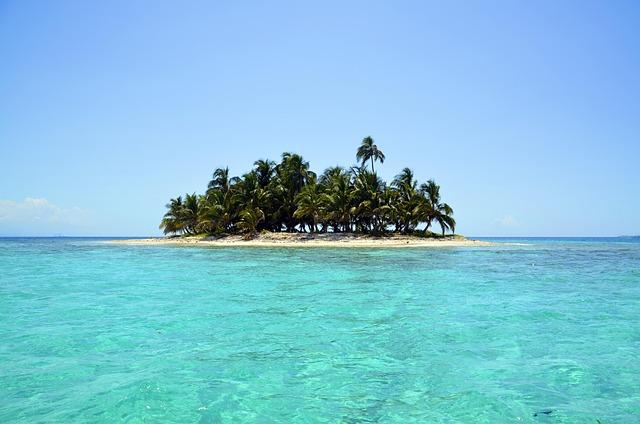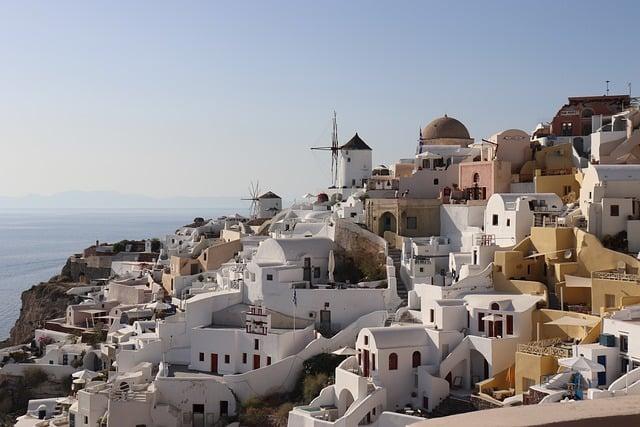In a significant diplomatic development, Mauritius has raised concerns over its longstanding agreement with the United Kingdom regarding the Chagos Islands, a territory of strategic and historical importance in the Indian ocean. This archipelago, known for its stunning biodiversity and contentious past, has been at the center of a heated dispute since the UK wrested control from Mauritius in the 1960s. The Mauritian goverment’s questioning of the validity and implications of the agreement signals a renewed push for sovereignty over the islands, which have become synonymous with colonial legacy and international legal debate. As Mauritius calls for a reassessment of its rights and the UK grapples with the repercussions of its colonial history, the future of the Chagos Islands remains fraught with complexities that extend beyond national borders, touching on themes of sovereignty, environmental justice, and the legacy of empire. In this article, we explore the intricacies of the current situation, the historical context, and the implications for both Mauritius and the United Kingdom.
Chagos Islands Dispute: Historical Context and Recent Developments
The Chagos Islands, an archipelago in the Indian Ocean, have been at the center of a protracted dispute between Mauritius and the United Kingdom. The roots of this conflict can be traced back to the 1960s when the UK acquired the islands as a part of the decolonization process. During this time, the indigenous Chagossians were forcibly removed from their home islands to make way for a strategic military base, now known as Diego Garcia. despite a ruling from the International Court of Justice in 2019 affirming Mauritius’ sovereignty over the Chagos Islands, the UK has maintained control, arguing that its military presence is essential for regional security.
Recently, tensions have escalated as Mauritius has begun to question the validity of the 1965 agreement that ceded the islands to the UK. This scrutiny comes in the wake of international support for Mauritius’ claims, particularly from African Union countries, reflecting a broader advocacy for decolonization and indigenous rights. Key points of this ongoing situation include:
- Legal challenges: Mauritius is pursuing further legal avenues to reclaim the islands.
- International involvement: Organizations like the African Union are backing Mauritius’ claims.
- Humanitarian concerns: The plight of the displaced Chagossians raises significant ethical questions.
As discussions continue, the future of the Chagos Islands remains uncertain. A recent table summarizes the historical milestones and current positions of both nations:
| Milestone/Development | year | Description |
|---|---|---|
| UK acquires Chagos Islands | 1965 | Agreement between UK and Mauritius for military use. |
| ICJ ruling on sovereignty | 2019 | Legal affirmation of Mauritius’ claim over the islands. |
| Current negotiations | 2023 | Ongoing dialog regarding the future of the Chagos Islands. |
Mauritius Calls for Reassessment of UK-Chagos Agreement
The ongoing diplomatic discourse between Mauritius and the United Kingdom regarding the Chagos Islands has reignited calls for a thorough review of the existing agreements surrounding the territory. In recent statements, Mauritius has emphasized the need to reevaluate the conditions under which the UK retains control over the islands, particularly the implications for local populations and international law. Officials argue that the current arrangement, which was established decades ago, fails to reflect contemporary geopolitical realities and the rights of indigenous peoples. Additionally, Mauritius asserts that the agreement was made under duress, further complicating its legitimacy.
Key points raised by Mauritian officials include:
- Historical Context: The agreement dates back to the 1960s and has been criticized for not considering the aspirations of the Chagossian people.
- International Support: Mauritius has garnered backing from various African nations and international organizations advocating for decolonization.
- Environmental Considerations: Concerns have been voiced about the ecological impact of military facilities established on the islands.
In light of these challenges, Mauritius is calling for enhanced dialogue with the UK, hoping to reach a mutually agreeable resolution that respects both sovereignty and historical injustices. The situation remains fluid, with ongoing negotiations expected to shape future relations between the two nations.
Impact of Chagos Islands dispute on Regional Stability
The ongoing dispute over the Chagos Islands has significant implications for regional stability in the Indian Ocean. The conflict primarily stems from Mauritius’s claim to the archipelago, which the UK has controlled as the 1960s. The geopolitical dynamics resulting from this disagreement have raised concerns about military presence and strategic alliances in the area. The islands’ proximity to critical shipping lanes coupled with the establishment of a US military base on Diego Garcia has made the conflict not just a bilateral issue, but one with potential implications for broader international relations.Tensions are increased by the interests of larger powers, each vying for influence in a region that is becoming increasingly crucial in global trade and security initiatives.
As Mauritius continues to question the legitimacy of its agreement with the UK, the stability of surrounding nations could be jeopardized. Stakeholders in the region, including countries like Seychelles and Madagascar, are closely monitoring the situation, as the outcome of this dispute could set a precedent for maritime sovereignty claims across the Indian Ocean. The potential disruption in maritime activities, coupled with heightened military engagements, could led to an arms race or increased naval presence in the region. Such developments underscore the urgent need for diplomatic dialogue aimed at resolving the dispute amicably while ensuring peace and stability for all affected nations.
Legal Implications of the Mauritius-UK Agreement Debate
The ongoing debate surrounding the agreement between Mauritius and the UK over the Chagos Islands carries significant legal ramifications. Central to this discussion is the principle of self-determination, which is enshrined in international law. Mauritius has argued that the cession of the islands to the UK in the 1960s was not made with the informed consent of the Mauritian people, thus calling into question the legitimacy of the agreement. The International Court of Justice (ICJ) has previously opined that the decolonization process was incomplete, lending weight to mauritius’ claims and highlighting the need for the UK to respect the rights of the Chagossians, forcibly displaced from their homeland.
Moreover, the legal challenges extend to sovereignty issues, particularly regarding the ongoing military presence of the UK on Diego garcia. The lease agreement with the United States has implications for both countries, creating a complex international situation that some argue contravenes UN resolutions aimed at resolving colonial legacies. Key points in this debate include:
- Historical context: Revisiting the circumstances surrounding the original agreement.
- Self-determination rights: Emphasizing the rights of indigenous populations in international law.
- Legal precedents: Assessing previous rulings by international bodies that may influence outcomes.
| Factor | Implications |
|---|---|
| Self-determination | Pivotal in international law for decolonization processes. |
| Sovereignty claims | Negotiations could redefine territorial legitimacy. |
| International relations | Affects the UK’s diplomatic standing and alliances. |
Voices from the Chagos Community: Heritage and Human Rights Concerns
The question of sovereignty over the Chagos Islands has prompted an outcry from the Chagos community, whose voices echo the unresolved issues of heritage and human rights. Many individuals who were forcibly displaced in the 1960s and 1970s are calling for recognition of their cultural identity and historical ties to the islands. They stress the importance of reinstating their rights to return and reclaim their land, expressing concerns that their narratives have been overshadowed by geopolitical negotiations.
Central to this discussion are several key concerns raised by the chagos community:
- Displacement and Remembrance: individuals highlight the psychological and emotional scars from being uprooted from their homes.
- Cultural Legacy: There is a significant push to preserve the unique cultural heritage of the Chagossians, which is at risk of fading away.
- Legal Recognition: The community seeks legal recognition of their rights and heritage, including support from Mauritius as it questions its agreements with the UK.
Furthermore, the ongoing dialogue around sovereignty has brought attention to potential reparations and recognition of grievances suffered by the Chagos community. Although the geopolitical landscape continues to evolve, the voices advocating for heritage preservation and human rights remain unyielding, demanding not just acknowledgment but actionable solutions to restore dignity and justice.
Path Forward: Potential Solutions for Resolution and Cooperation
The situation surrounding the Chagos Islands necessitates a collaborative approach to find workable solutions that can appease both Mauritius and the United Kingdom. Engaging in constructive dialogue can pave the way towards a mutual understanding and cooperation. Potential avenues include:
- Negotiated Resolution: Initiating formal discussions between Mauritius and the UK to review existing agreements and explore the possibility of new accords.
- International Mediation: Involving neutral third parties, such as the United Nations or the African Union, to facilitate discussions and ensure fair representation of both parties’ interests.
- Joint Development Initiatives: Crafting projects that benefit both entities, focusing on sustainable development, environmental protection, and economic cooperation in the region.
Moreover, fostering a obvious dialogue can help rebuild trust and build lasting partnerships. The emphasis should be placed on respecting international law while accommodating the concerns of the chagossian people. Possible strategies to achieve this include:
- Public Forums: Organizing community discussions to involve Chagossians in the conversation and ensure their voices are heard.
- Legal Re-evaluation: Conducting a thorough review of historical agreements to uncover any overlooked legal frameworks that may favor Mauritius’s claims.
- Community Compensation Programs: Establishing programs that adequately address the historical injustices faced by the Chagossian community, fostering goodwill between the parties.
Insights and Conclusions
the ongoing dispute surrounding the Chagos Islands serves as a striking illustration of the complexities entwined in post-colonial legacies and territorial sovereignty. As Mauritius raises pertinent questions regarding its 1965 agreement with the UK, the implications of this dialogue extend beyond mere ownership—they touch on issues of human rights, environmental stewardship, and international law. The Chagos Islands, once home to a vibrant population, stand as a poignant reminder of the challenges faced by nations seeking to reclaim their heritage and autonomy. as both countries navigate this critical juncture, the global community watches closely, recognizing that the resolution of the Chagos Islands dispute may set a significant precedent for future discussions surrounding decolonization and territorial claims across the world.

